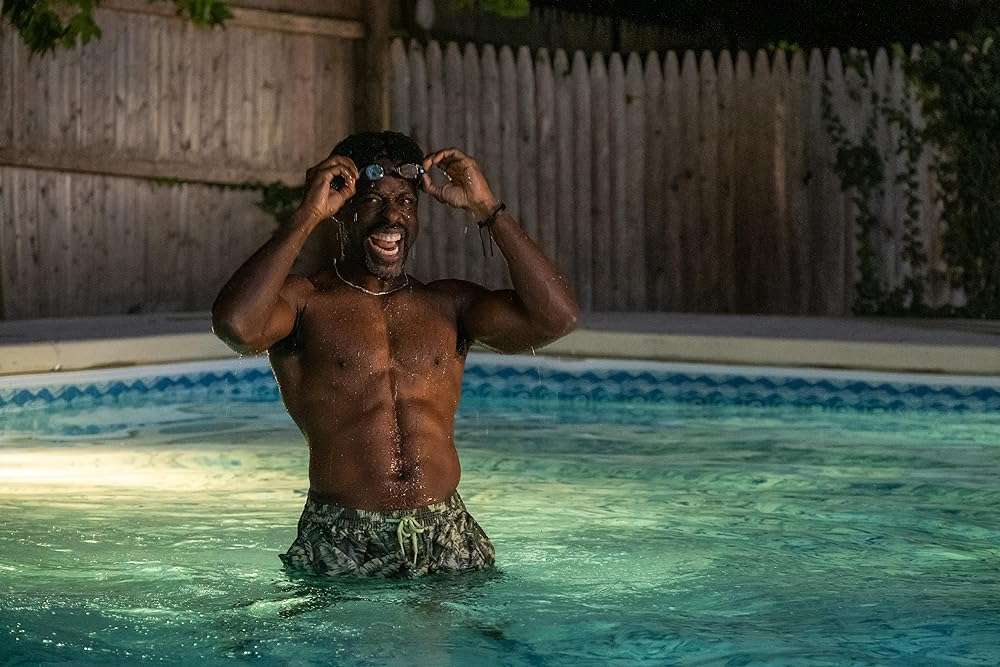Few things are more annoying than a movie that preaches to the choir. “American Fiction,” adapted from Percival Everett’s “Erasure” by debut filmmaker Cord Jefferson, is such a movie – intellectual on the surface but too neutered and agreeable to say anything fresh. The film’s real crime, though, is selling the same streamlined narrative it ostensibly sets out to redress. Thelonious “Monk” Ellison (Jeffrey Wright) hasn’t gotten a book to market in years and finds himself out of a job teaching the literature of the American South after a student objects to his contextually appropriate invocation of a racial epithet.
Publishers keep passing on his re-working of Aeschylus’ “The Persians,” preferring manuscripts from writers of color that only tell special-interest stories about the minority experience – trauma porn, in other words, like “We’s Lives in Da Ghetto” by Sinatra Golden (Issa Rae). For the sake of its argument, the film asks that we believe only Monk can see the book for what it truly is. Missing are any hints of the online firestorm that would ensue the release of such a basely commercial product. That’s just one way the film reminds us it’s sourced from material published in the early aughts.
A hyperliterate family of doctors that expresses love with razor-edged verbal jabs thrown over glasses of Chenin blanc, the Ellisons starkly contrast the stereotypes exploited by artists like Golden. Besides Monk, there are his two recently divorced siblings, Lisa (Tracee Ellis Ross) and Cliff (Sterling K. Brown), neither of whom has the money to care for their ailing mother (Leslie Uggams). “American Fiction” would almost certainly be charged with trafficking in “respectability politics” had critics not granted it the imprimatur of “high-brow” cinema.
Strapped for cash and cornered by a literary scene only interested in African-American writing that delves into drugs, gangs, and teenage pregnancy, Monk decides to give the market what it wants. This detail doesn’t make a whole lot of sense, considering how genuinely shocked he appears once the resultant book, which he repeatedly insists was only written in jest, gets acquired by a publisher. Horrified to learn that his practical joke, with its broad, nearly parodic characterizations, is being received as gripping drama, Monk starts actively working against its success.

Often reaching for low-hanging fruit, “American Fiction” winds up more facile than incendiary. Most of us can spot and ridicule base poverty porn; the average consumer in the world of “American Fiction” can’t. While exaggeration is a key ingredient in any satire, a nimbler, more challenging film would’ve contended with the ugly truth that great art panders too. The reading demographic “American Fiction” lampoons is, in actuality, enthralled by Toni Morrison and James Baldwin.
Are novels by them exempt from this kind of analysis because they’re masterworks? A private exchange between Monk and Sintara does begin to wade into the subject’s complexity but forces the latter to advance a couple of seemingly irreconcilable points that never get properly examined. Generously read, the scene vacillates so as not to lead us toward categorical conclusions. But anyone who isn’t committed to loving this very flawed movie will plainly see that it cops out of its own convictions.
Though not entirely devoid of insight, “American Fiction” feels tailored to the same crowd Jefferson is targeting. The familial subplot that backdrops Monk infiltrating the New York Times bestsellers list, while necessary to the point Jefferson is making, doesn’t cohere with the main narrative. Worse, these scenes are made up of uninspired filler dialogue that plays like elevator music – a comparison that feels particularly appropriate given the movie’s pleasant but generic score.
As a debut piece of filmmaking, “American Fiction” is more than technically competent and recalls another satire of the entertainment industry that put a writer-director on the map (and features Adam Brody as an assistant to the kind of blowhard Hollywood executive he plays here) – Jason Reitman’s “Thank You For Smoking” from 2006. But that was ahead of its time. “American Fiction,” on the other hand, has all the blindspots of an “issue” movie released in 2023.
It’s strange to consider that the film may soon be honored – potentially alongside “The Color Purple,” no less – by the same institution that gave Best Picture to “Moonlight.” How does the movie escape its own central critique of a media landscape that only recognizes minority characters in narratives hinged on race? Should the takeaway be that race, contrary to what Monk may believe, is an inextricable fact? Or, did Jefferson not trust that a slice-of-life melodrama about people like the Ellisons could secure financing unless it included a hot-button sociopolitical element?
If that’s the case, the film we’re left with is just as cynical and calculated as “We’s Lives in Da Ghetto.” Perhaps the most radical thing Jefferson could’ve done was simply make a family comedy. That movie, at the very least, would please his protagonist.

![Evil Dead [2013]: Scores High in Violence & Gore, Falls Short in Everything Else](https://79468c92.delivery.rocketcdn.me/wp-content/uploads/2018/05/Evil-Dead-768x326.jpg)



